The definition of power and how it is accessed has evolved significantly over time. The School of Statesmanship, Stewardship, and Service (SOSSAS) is aligned with a higher purpose of fostering evolved civility, built on attributes that transcend traditional views of power and reflect timeless truths.
Throughout history, the thoughts and words of individuals often mirror the times they live in. Sometimes, however, these ideas transcend their era and remain timeless. Struggle and pain, in particular, have always been essential elements in growth—whether for individuals, organizations, communities, nations, or even the planet as a whole. Over time, the meaning of power has changed as well. We’ve moved from seeing power as something rooted in coercion and duress to a more advanced understanding, embracing the spiritual power of service, education, patience, dignity, and generosity.
Great thinkers like Viktor Frankl and Nelson Mandela endured profound injustices, yet they accessed deeper forms of power that rejected force and compulsion. Instead, they embraced patience, dignity, and resilience—models of power that break away from the outdated “might is right” mentality. These examples show that power today is no longer about dominance but about growth, empathy, and collective good.
In my own research, exploring articles from various decades in U.S. history, it’s clear that concerns about the potential demise of democracy are often deeply tied to the political and economic climates of the time. For instance, many believed during the 1930s—under FDR’s presidency and the shadow of the Great Depression—that democracy was at serious risk due to the New Deal policies. Yet, looking back, it becomes evident that many of these articles were politically charged rather than being objective analyses. Strong democracies transcend political agendas, and it is the activation of the common good by everyday people that truly sustains democracy.
At SOSSAS, we are teaching a new model of philosophical change. This model focuses on identifying and expanding what is good, rather than concentrating on problems or wielding power through fear, compulsion, or force. Our approach is grounded in nurturing civility, thoughtfulness, and service. We aim to move beyond disruption and agitation as the necessary pathways for progress. Instead, we focus on advancing goodness and promoting sustainable positive change.
When I oversaw 400 police officers and firefighters, I consciously chose not to rely on the forces of compulsion, legislation, or rank to bring about accountability. Despite having the formal power to demand, control, and force outcomes, I adopted a different model—one that aligned with more evolved views of how power should be used. It was a model built on collaboration, mutual respect, and a shared commitment to the common good, resulting in the outcomes we hoped for without resorting to coercion.
Our work at SOSSAS is about cultivating this type of power—the power that brings about change not through opposition or control but through empathy, goodness, and thoughtful, civil discourse. This is the foundation for an evolved democracy and a more just world.

